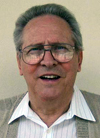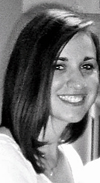 |
D-Lib Magazine
November/December 2013
Volume 19, Number 11/12
Table of Contents
An Overview of the 17th International Conference on Theory and Practice of Digital Libraries (TPDL 2013)
Vittore Casarosa
Institute for Information Science and Technologies (ISTI), Italian National Research Council (CNR), Pisa, Italy
casarosa@isti.cnr.it
Ana Pervan
Intern at the European Organization for Nuclear Research (CERN), Meyrin, Switzerland
ana.pervan@cern.ch
doi:10.1045/november2013-casarosa
Printer-friendly Version
Abstract
The 17th International Conference on Theory and Practice of Digital Libraries (TPDL) took place in Valletta, Malta, during September 22-26, 2013. A diverse community of participants and their different research approaches gave an international and interdisciplinary feel to this year's conference. The general conference theme was "Sharing meaningful information". Approximately 300 delegates from more than 40 countries presented and discussed challenges and opportunities of digital library architecture, interoperability and information integration, digital library interfaces, user behavior, data re-use and Open Access, linked data, data visualization, long-term preservation, Semantic Web in digital libraries and digital curation.
Introduction
The 17th International Conference on Theory and Practice of Digital Libraries (TPDL) took place in Valletta, Malta, during September 22-26, 2013. The General Chairs were Milena Dobreva from University of Malta (Malta) and Giannis Tsakonas from University of Patras (Greece). They, along with the Program Chairs Trond Aalberg from Norwegian University of Technology and Science (Norway) and Christos Papatheodorou from the Ionian University (Greece) organized a very successful conference.
Sponsors and co-organizers of the Conference were the University of Malta, COST (European Cooperation in Science and Technology) and the UNESCO National Commission in Malta, which for a few days transformed Valletta from a tourist capital into a digital library-oriented capital. Malta's government was also one of the active supporters of the conference. The Minister for Education and Employment of Malta, Evarist Bartolo, opened the conference by highlighting the importance of technology in a changing library world and confirming the attendees' interest in the development of the digital library disciplines. By receiving the "green light" from a representative of Malta's government, the TPDL 2013 Conference was officially opened.
Conference Highlights
A diverse community of participants and their different research approaches gave an international and interdisciplinary touch to this year's conference. Academics, practitioners, developers, students and users gathered in order to share new ideas and discuss the current "hot topics" in the field of Library and Information Science. The general conference theme "Sharing meaningful information" was divided into four broad areas, namely: Digital Library Infrastructure, Foundation, Content and Services. About 300 delegates from over 40 countries presented and discussed challenges and opportunities in digital library architecture, interoperability and information integration, digital library interfaces, user behavior, data re-use and Open Access, linked data, data visualization, long-term preservation, Semantic Web in digital libraries and digital curation.
Two keynote speakers captured the main TPDL objective, which was developing an interdisciplinary approach to digital libraries. Christine L. Borgman opened the conference by giving a speech on "Digital Scholarship and Digital Libraries: Past, Present and Future". In her talk, Borgman stressed the importance of writing and publishing scientific research papers while also keeping in mind data re-use. The second keynote speaker, Sören Auer, closed this year's TPDL conference by delivering a speech on "What can Linked Data do for Digital Libraries?". In his talk, digital libraries were presented as knowledge hubs whose main purpose is to create knowledge through the sharing of content by the means of linked data. The presentation started with a very concise introduction to Linked Data, showing how Linked Data can provide a semantic web on top of the existing "hyperlink web", allowing a more meaningful navigation and discovery of interesting information.
Two panel sessions covered some of the issues about the present state and the future of digital libraries. The first one, entitled "COST Actions and Digital Libraries: Between Sustaining Best Practices and Unleashing Further Potential" was focused on showing how multi-national cooperation could bring benefits to on-going digital library research. COST is a program of the European Union aimed at strengthening Europe's scientific and technical research capacity by supporting cooperation and interaction between European researchers. The second panel "e-Infrastructures for Digital Libraries...the Future" was focused on the ways in which new research methods, based on intensive computing and "big data", enable new means and forms for scientific collaboration. Research and collaboration will be supported by e-Infrastructures, allowing researchers to access remote facilities and manage and exchange large amounts of digital data.
In addition to the technical sessions, with presentations and discussions of scientific papers, there was also what is becoming the "usual" Minute Madness session, in which participants were allocated one minute each to present the 21 posters and the 8 demos that could be seen during the Conference. Posters and demos covered a wide range of topics, from data curation and preservation to advanced search and retrieval, from recommender systems to semantic web and linked data.
The two main topics in the closing session were the announcement of the winners of the "TPDL Best Paper Award" and the venue and dates of next year's Conference. There were three categories for the best paper award. The winners were:
- Best Paper Award: "An unsupervised machine learning approach to body text and table of contents extraction from Digital Scientific Articles" by Stefan Klamp and Roman Kern
- Best Student Paper Award: "Who and what links to the Internet Archive" by Yasmin AlNoamany, Ahmed AlSum, Michele C. Weigle, and Michael L. Nelson
- Best Poster/Demo: "Country-Level Effects on Query Reformulation Patterns at the UK National Archives" by Steph Jesper, Paul Clough and Mark Hall.
For the next TPDL conference, the important news is that in 2014, the JCDL Conference normally held in the US and the TPDL Conference normally held in Europe will join forces and organize one single event, which will be held on 8-12 September in London. So save the date and plan to attend what is expected to be an extraordinary event, where innovative ideas, interdisciplinary approaches and novel results will be presented and discussed.
Satellite Events
As in previous TPDL gatherings, a number of events related to the themes of the Conference were held immediately before or after the Conference. A day long doctoral consortium event gathered doctoral candidates and gave them a chance to present their research, discuss, share ideas and get guidelines for improving their current work. Six contributions were presented and discussed, showing the diversity and breadth of the Library and Information Science field.
- Development of a Methodology for Automatically Positioning Electronic Publications Into "Universal Decimal Classification" System;
- Integration of Life science Resources;
- Modeling of Archival User Needs;
- Digital Libraries Exploration Using Automatic Text Summarization;
- Folksonomy-based Resource Recommendations for Databases and Digital Libraries;
- A Knowledge Organization Approach to Scientific Trends Exploration.
The day before the conference was dedicated to tutorials, and this year there were six half-day tutorials, some of them offering hands-on experience. The topics offered were: Linked Data for Digital Libraries; From Preserving Data to Preserving Research: Curation of Process and Context; State-of-the-art Tools for Text Digitisation; Mapping cross-domain metadata to the Europeana Data Model (EDM); ResourceSync: The NISO/OAI Resource Synchronization Framework; The Role of XSLT in digital libraries, editions, and cultural exhibits. As it can be seen, long term preservation and digitisation and management of data in the Humanities continue to be two very relevant topics.
Continuing a tradition, at the end of the conference a number of workshops, bringing together academics and practitioners to discuss challenges, issues and opportunities on topics of actual interest were held. The workshops were:
- Practical Experiences with CIDOC CRM and its Extensions;
- Moving beyond technology: iSchools and education in data curation. Is Data Curator a new role?;
- The 2nd International Workshop on Supporting Users Exploration of Digital Libraries;
- The 3rd International Workshop on Semantic Digital Archives;
- Networked Knowledge Organisation Systems and Services — 12th European Networked Knowledge Organisation Systems Workshop;
- Linking and Contextualizing Publications and Datasets: Paving the way towards Modern Scholarly Communication.
The novelty of this year's TPDL conference was the cooperation with the iSchool community through a Global Workshop of iSchools (G-WiS). The main aim of G-WiS was to support the collaboration between different iSchools and foster the development of this movement on a global scale. Students of DILL (DIgital Library Learning) an International Master started in the framework of the Erasmus Mundus program of the European Union and presently carried on by three partner Universities, were invited to actively participate and present their work during the iSchool session. The covered topics were: tools for preserving digitized special collections, digital curator competences, data visualization and fostering learning in digital environment. The cooperation between TPDL 2013 and iSchools was perceived as a good opportunity for students and young researchers to network, gaining new ideas and getting a broader view of the academics' and practitioners' research approaches.
Finally, the social events included an opening reception, which was held along with the poster and demo session. Thanks to the very good weather the reception was held in the open air, on the massive ramparts surrounding the venue of the conference. Of course, there was also a social dinner, held in a characteristic restaurant in the old town of Mdina, Malta's old capital. A number of tours to Valetta (Malta's capital) and to Gozo, the nearby island, were also offered to the attendees' guests.
Proceedings of this year's TPDL conference were published by Springer, in the LNCS series, entitled: "Research and Advanced Technology for Digital Libraries", and can be accessed here.
About the Authors
 |
Vittore Casarosa graduated in Electrical Engineering at the University of Pisa. After a few years spent as a researcher at CNR (the Italian National Research Council), he spent many years in the R&D laboratories of IBM in Italy, France and in the U.S., conducting and managing research mostly in image processing and networking. Since 1996, he is Senior Research Associate of the Italian National Research Council at ISTI, where he is associated with the activities of the Multimedia Laboratory in the field of Digital Libraries; from 2000 to 2007 he was deputy Director of DELOS, the Network of Excellence on Digital Libraries. From 2008 to 2012 he collaborated with HATII at the University of Glasgow for training activities on long term preservation of digital objects. Since 2007 he has taught courses on Digital Libraries at the Open University of Bolzano, at the University of Parma and at the University of Pisa.
|
 |
Ana Pervan is enrolled in an international master's degree program Digital Library Learning, which is offered in cooperation between Oslo and Akershus University College of Applied Sciences (Norway), Tallinn University (Estonia), and the University of Parma (Italy). She holds a master's degree in Knowledge Management field of Information Science from Faculty of Humanities in Osijek, Croatia. Her two main research interests include data curation and creation, representation and re-use of scientific data. Currently she works as an intern in GS-SIS department in CERN.
|
|